You might be thinking, “Insects? In my garden?
Aren’t they supposed to be the enemy?” Not at all!
While some pests can wreak havoc on your plants, many insects are actually your garden’s best allies. These beneficial insects help control the bad guys, pollinate your plants, and even improve the soil.
So, let’s meet 12 of these unsung heroes, shall we?
1. Bees
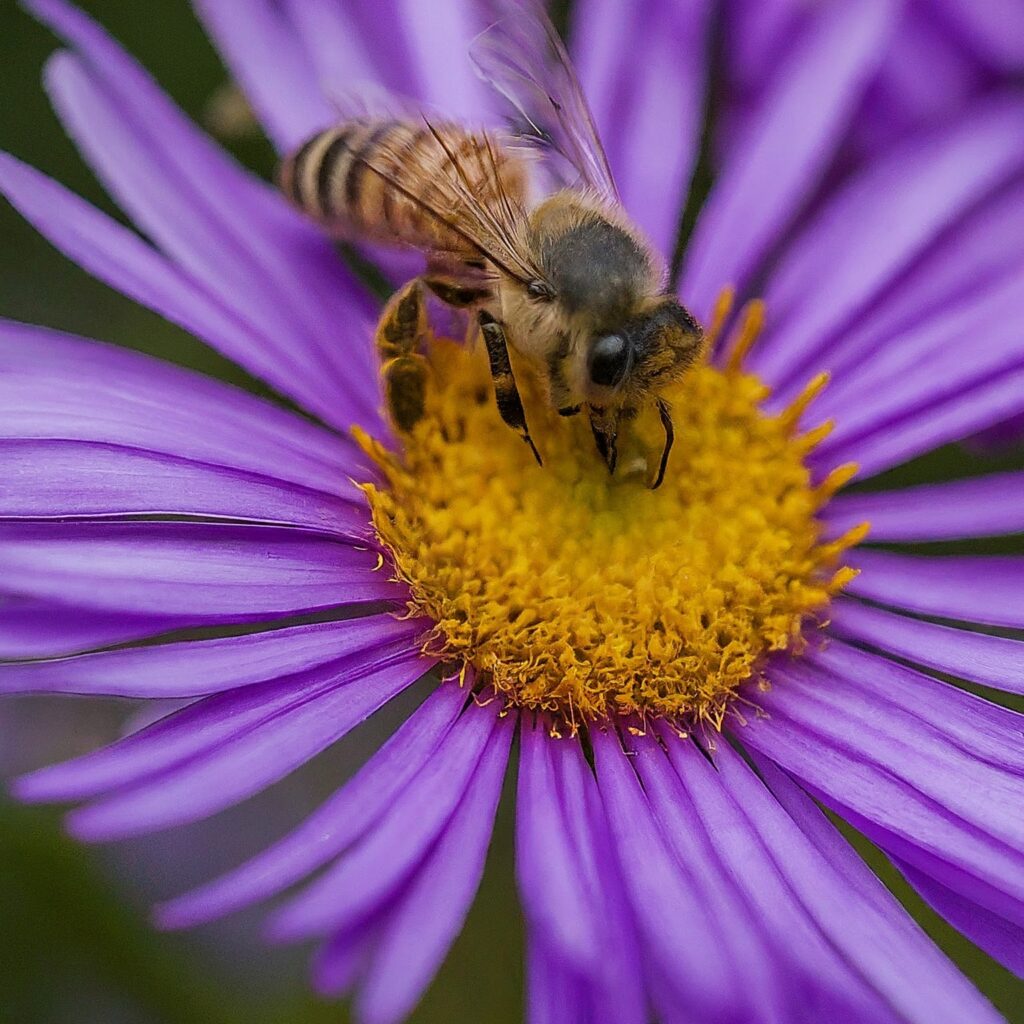
Bees, those industrious little insects, are crucial players in the world of agriculture and food production. Their contribution goes far beyond producing honey.
In fact, bees pollinate a staggering one-third of all food consumed we consume. These buzzing pollinators visit over 90 varieties of crops out of the global top 107 crops.
From almonds and apples to blueberries and cucumbers, bees ensure the diversity and abundance of our fruits, vegetables, and nuts.
Imagine a world without the sweet crunch of an apple or the juicy burst of a blueberry—pretty bleak, right?
2. Ladybirds
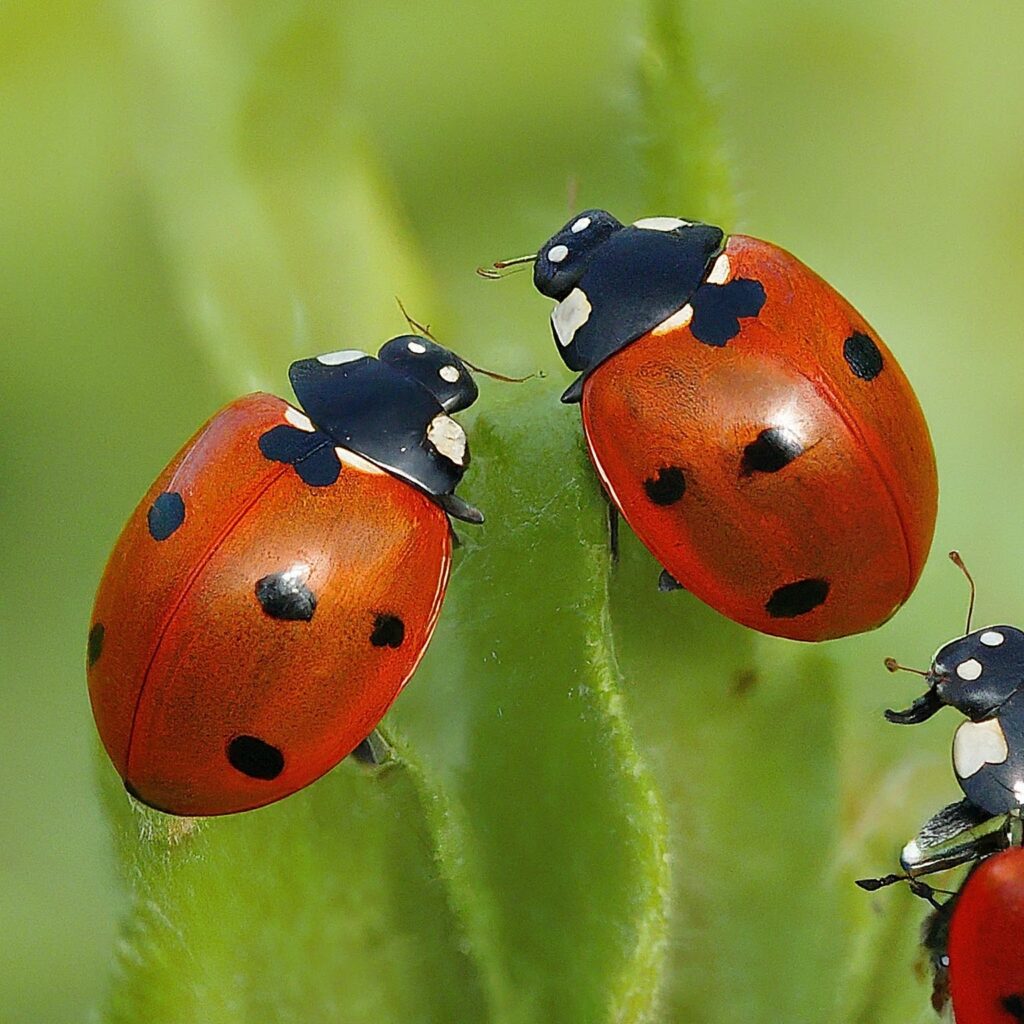
Next up, the beloved ladybug.
Ladybirds, commonly known as ladybugs, are considered a symbol of good luck. These colorful insects feed on a variety of pests, making them a gardener’s best ally in natural pest control.
Ladybugs are voracious eaters of aphids, those tiny green pests that love to munch on your plants.
Also, did you know that one ladybug can eat up to 5,000 aphids in its lifetime? Yes, that’s true!
So, if you spot these dotted beauties in your garden, consider yourself lucky!
3. Hoverflies
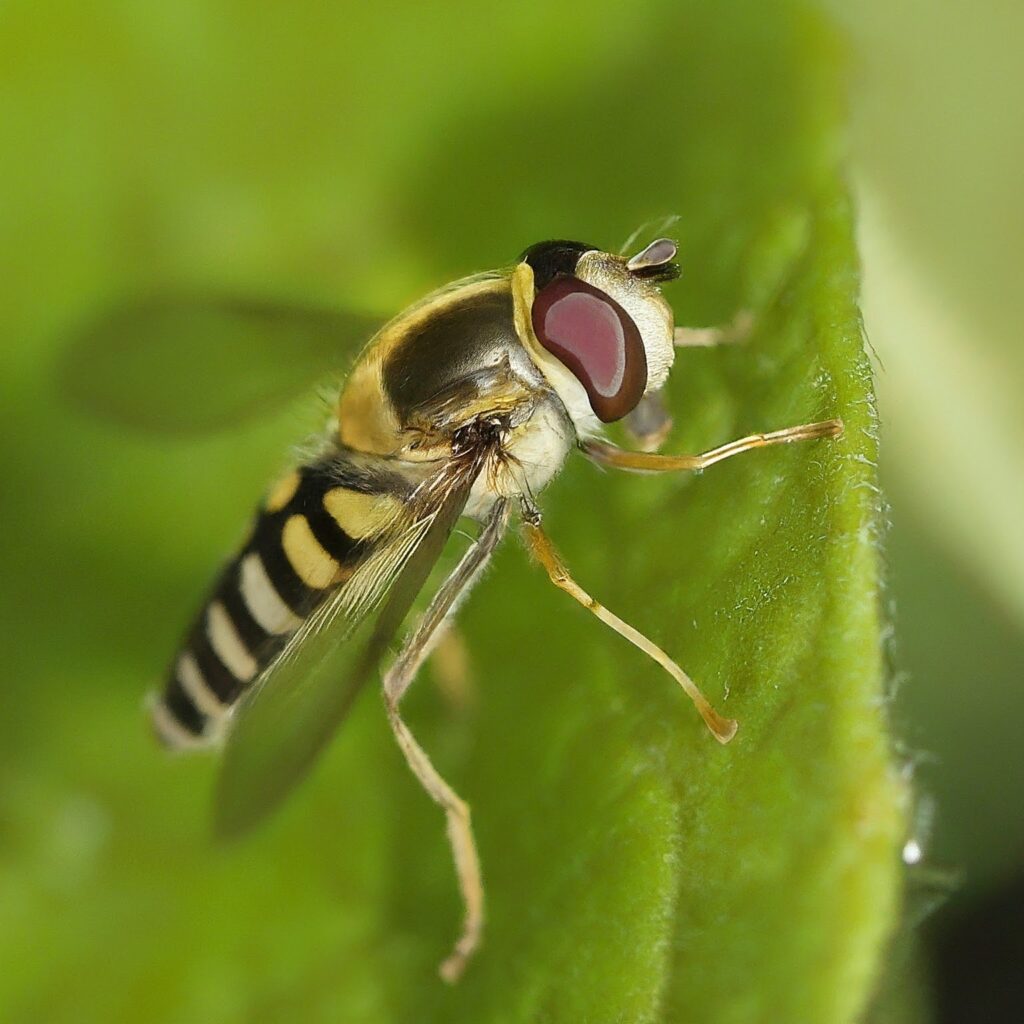
Hoverflies look like tiny bees with yellow and black coloration. These insects aid in pollinating flowers.
What’s more, hoverfly larvae feed on aphids, scales, and other soft-bodied pests. In fact, some gardeners even introduce hoverflies to their gardens specifically to control aphid populations!
So, if you see these little guys hovering around your flowers, it’s a sign your garden is in good hands.
4. Ground Beetles
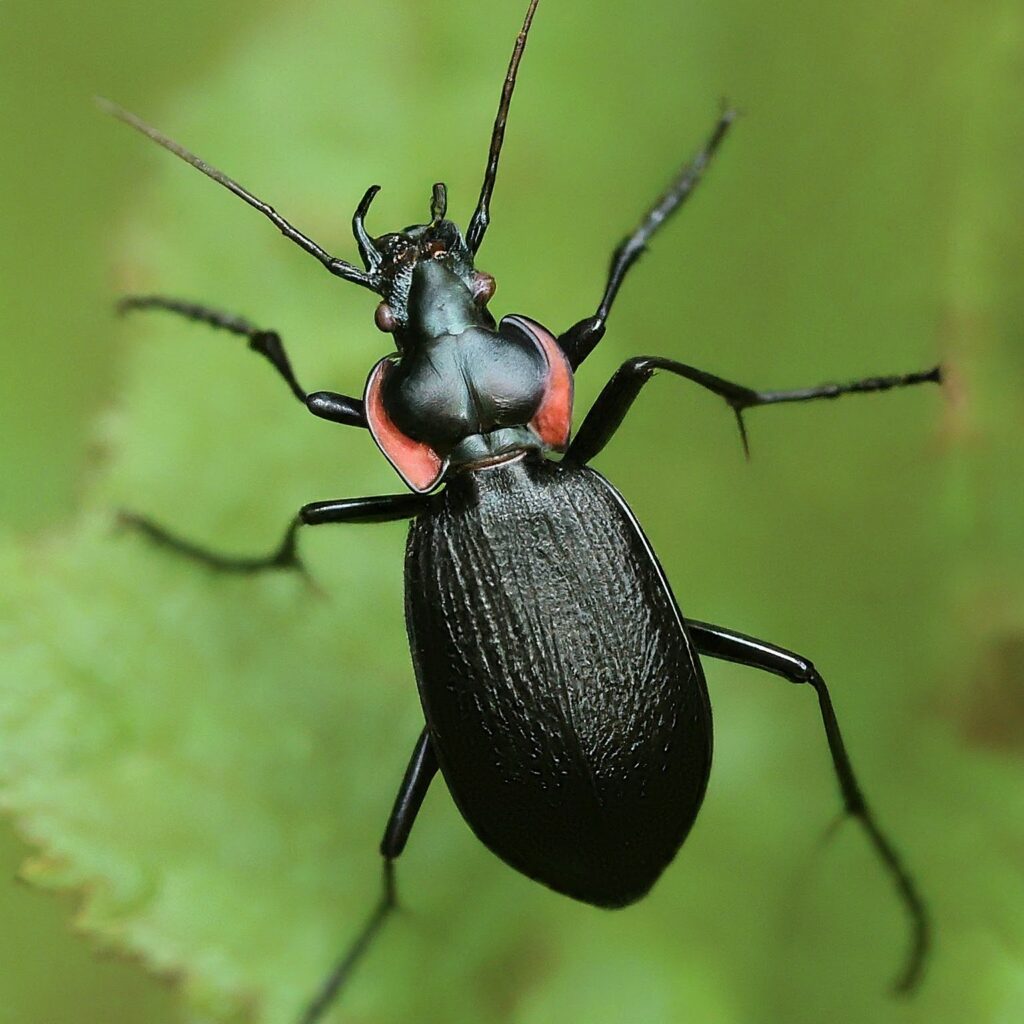
With over 250,000 species, ground beetles are voracious predators of common garden pests like cabbage worms and potato beetles. While they may consume earthworms, their pest control benefits outweigh this drawback.
Ground beetles patrol the soil surface at night, feeding on slugs, snails, mealybugs, and other pests that can damage your plants. Besides being fast and efficient, they’re always on the lookout for their next meal.
Having ground beetles around means fewer pests and healthier plants.
5. Green Lacewings
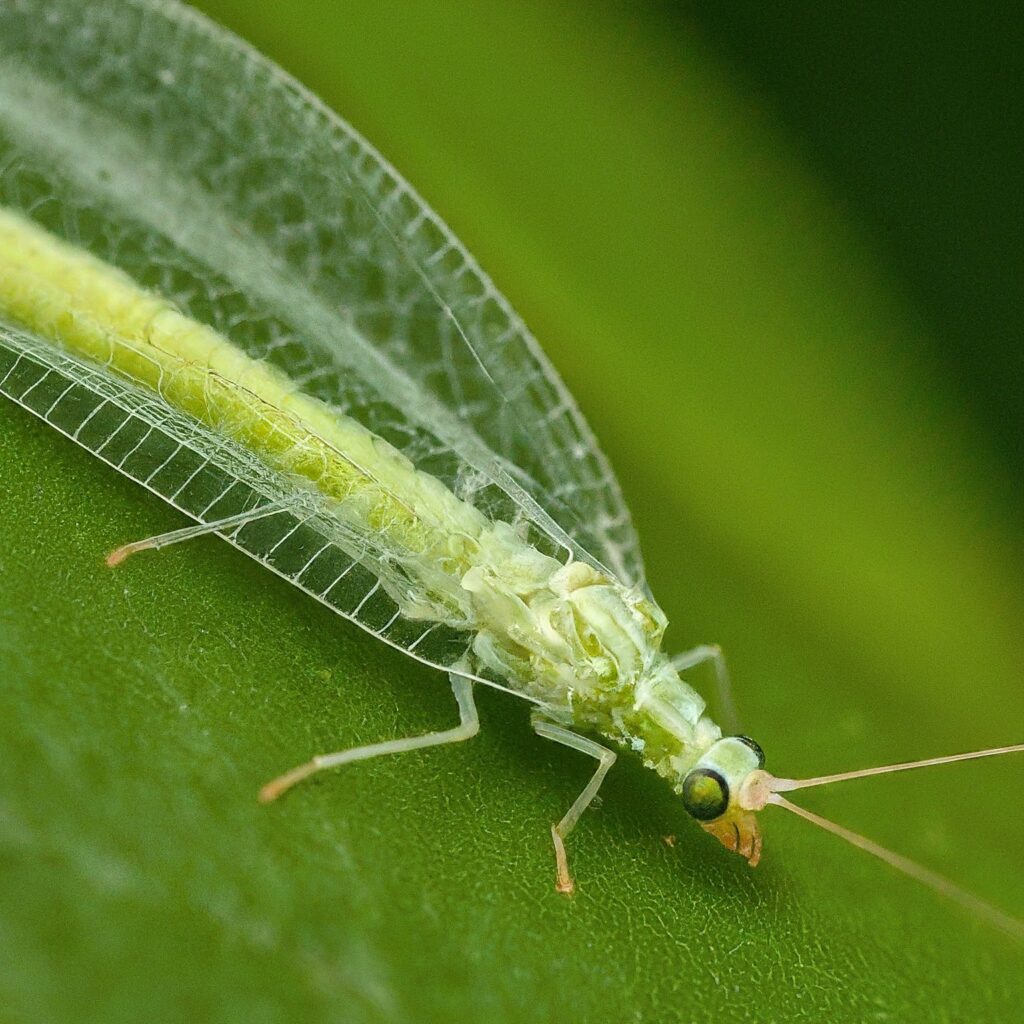
Green lacewings are generalist predators, feeding on a wide range of garden pests. Their larvae are particularly effective, capable of eliminating over 200 pests in just a week.
Adult lacewings themselves are great pollinators, flitting from flower to flower and sipping nectar.
But the real pest-busting power lies with their young. The larvae have sharp mandibles and impressive appetites, consuming dozens of aphids each week.
So, if you spot delicate, lace-like wings with glistening green bodies flitting about your garden, it’s time to rejoice!
6. Spiders
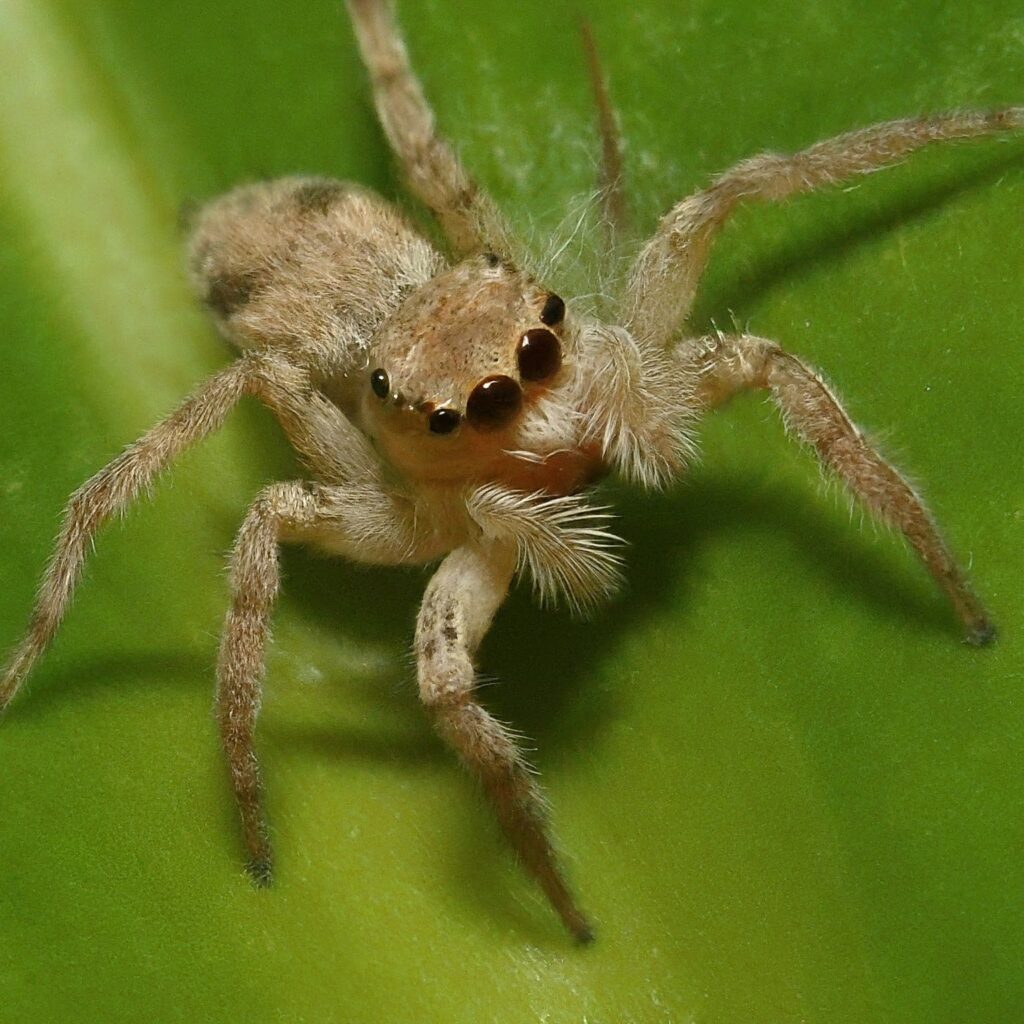
Despite arachnophobia, spiders are beneficial in gardens, preying on a variety of insects. While they may inadvertently catch beneficial insects in their webs, their pest control contributions are valuable.
These eight-legged wonders act as natural pest control, spinning intricate webs or actively hunting to capture a variety of insects. Aphids, beetles, flies, and even mosquitoes fall prey to their impressive hunting skills.
Furthermore, spiders contribute to a healthier overall environment.
They reduce the need for chemical insecticides, minimizing the harmful impact on beneficial insects like ladybugs and butterflies. This promotes a natural balance within your garden, allowing all sorts of creatures to play their part in a healthy and vibrant space.
7. Soldier Beetles
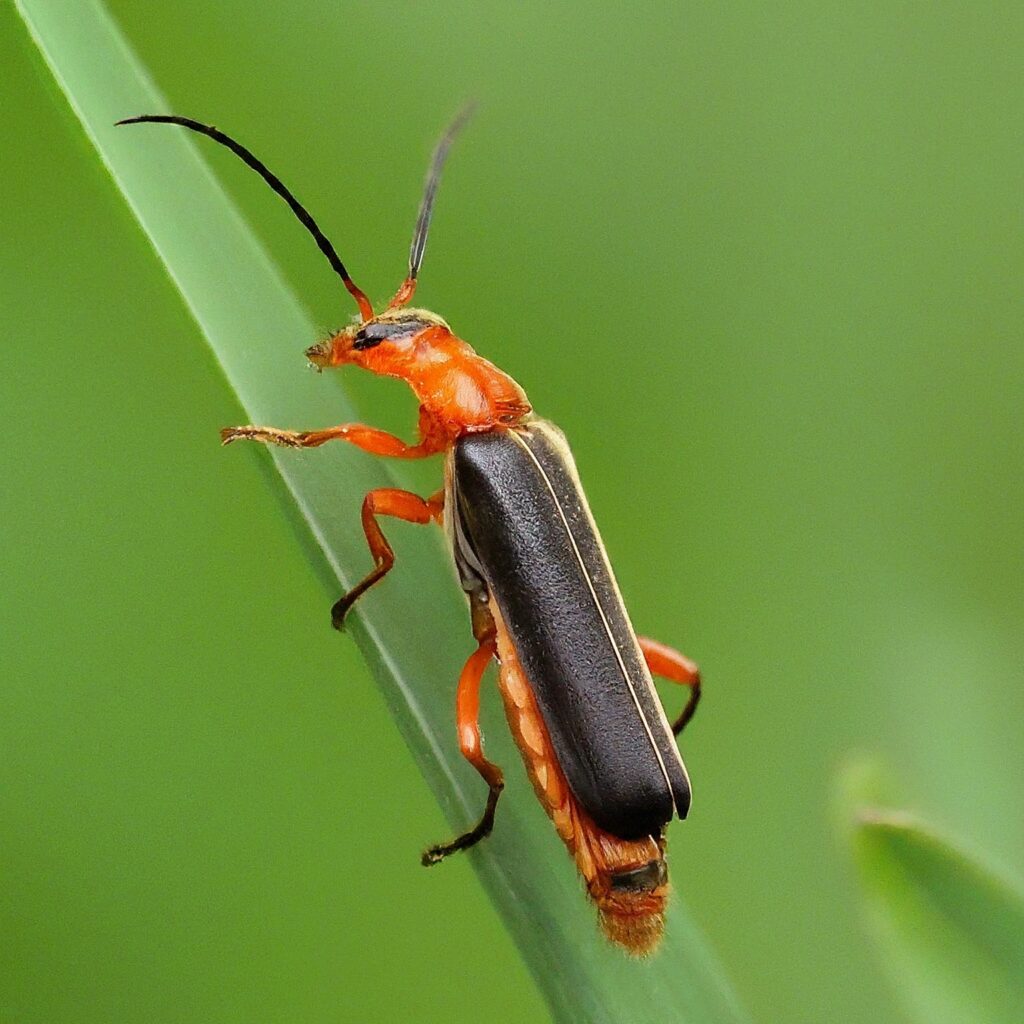
Soldier beetles, also known as leatherwings, are slender, brightly colored insects that feed on harmful insects in your garden. They come in a range of reds, oranges, and yellows, often with a metallic sheen.
While they may look a bit intimidating, soldier beetles play a valuable role in maintaining a healthy garden ecosystem.
The true pest-fighting power of soldier beetles lies in their larval stage.
Soldier beetle larvae are active predators that feast on a variety of soft-bodied insects, including aphids, caterpillars, and beetle eggs. These tiny warriors can consume dozens of pests each week, protecting your precious plants from damage.
8. Braconid Wasps
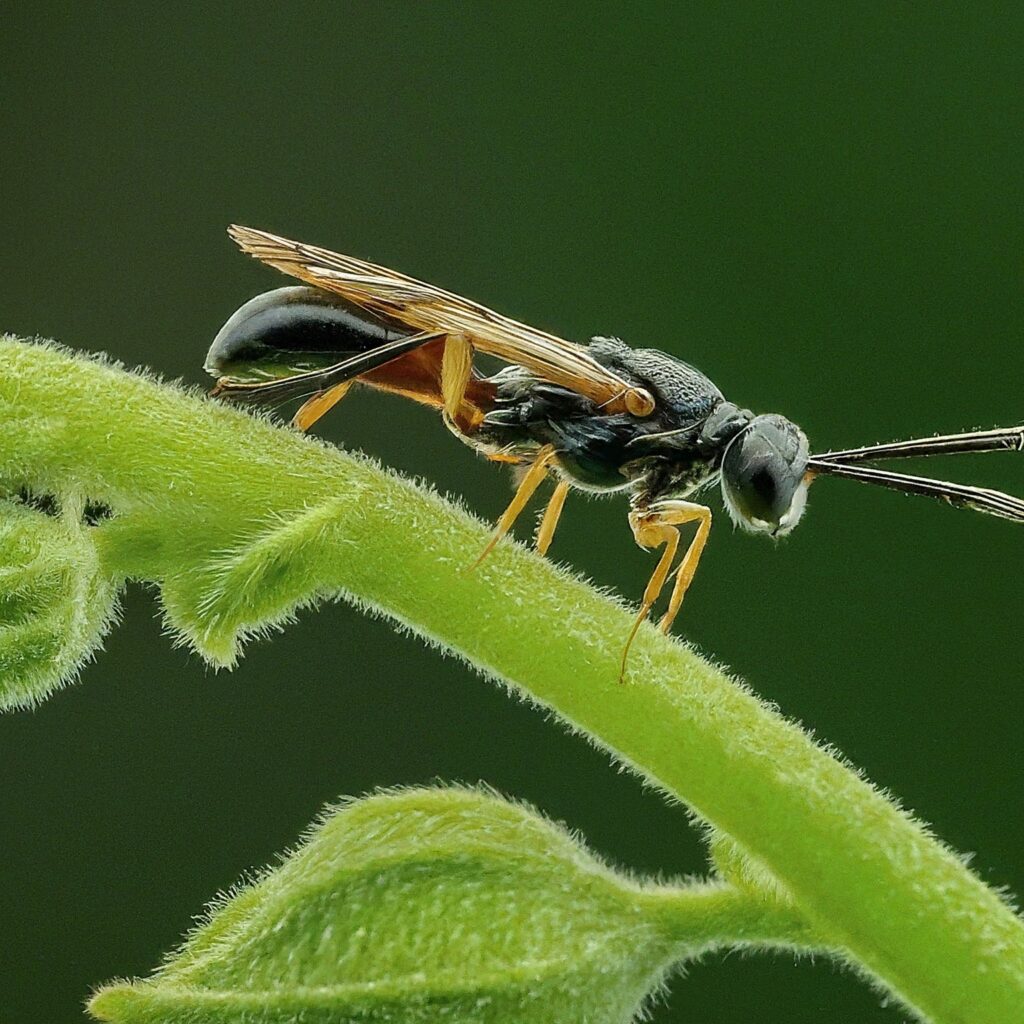
Don’t be alarmed if you see tiny wasps flitting around your garden – they might just be braconid wasps, your allies against pesky insects.
Unlike their stinging cousins, braconid wasps pose no threat to humans and are incredibly beneficial for your garden. These miniature marvels act as natural pest control through a fascinating life cycle.
Adult braconid wasps target soft-bodied pests like aphids and caterpillars.
With a sharp ovipositor (egg-laying tube), they lay their eggs directly on or inside these unsuspecting hosts. The wasp larvae then hatch and become internal hitchhikers, feeding on the pest from the inside out. This ultimately weakens and kills the host, effectively controlling the pest population.
9. Aphid Midges
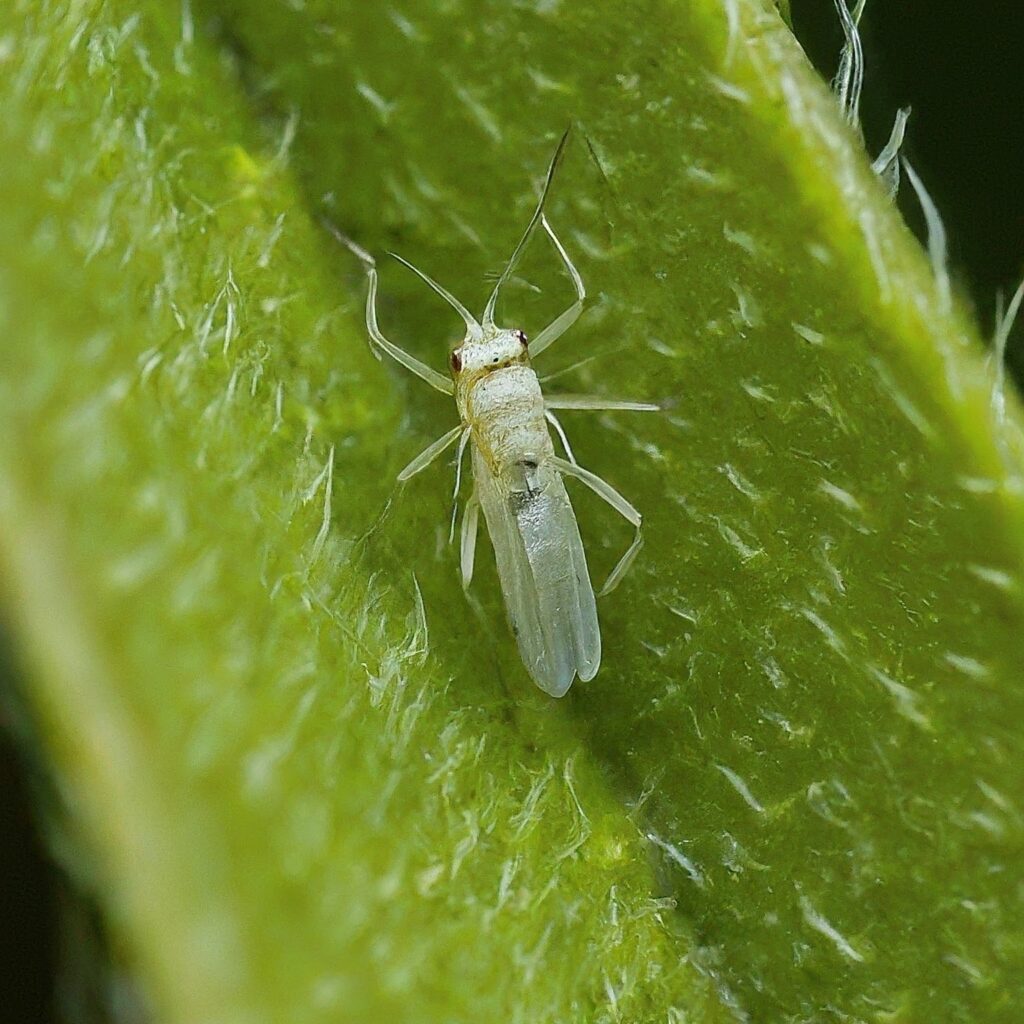
Aphid midges are tiny flies that transform into the secret assassins of your garden’s enemy insects.
Adults, barely bigger than a gnat, flit around leaving their deadly cargo – eggs – near aphid colonies. These eggs hatch into bright orange larvae, the true aphid assassins.
They inject a paralyzing venom into aphids, then devour the insides of their prey. A single larva can consume up to 100 aphids a day, making them incredibly effective at controlling aphid populations.
So, the next time you see a swarm of tiny orange specks amongst your plants, don’t be afraid – it’s just a team of aphid midge larvae cleaning house!
10. Damsel Bugs
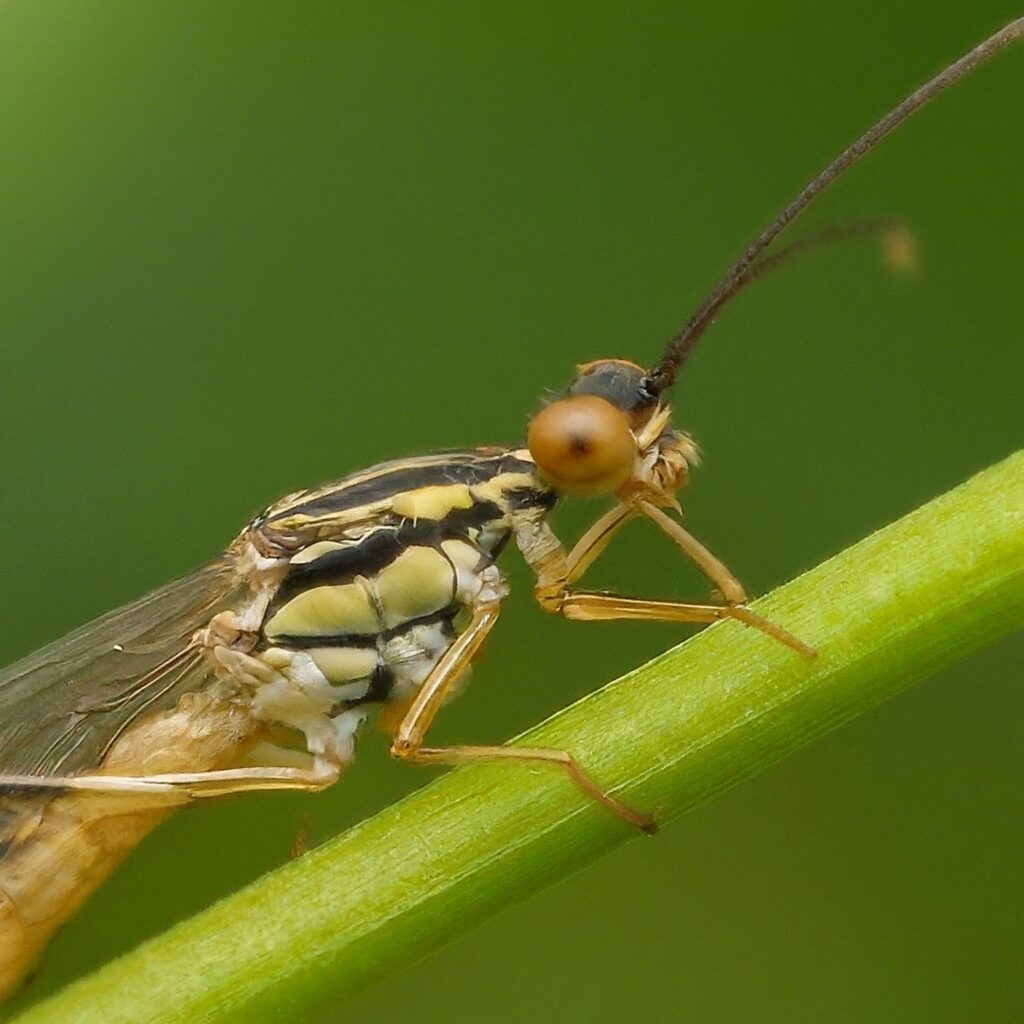
Damsel bugs, with their elongated bodies and large eyes, are guardians of the garden in disguise. Often mistaken for harmful pests due to their piercing mouthparts, these slender insects are actually beneficial predators.
Damsel bugs are ambush hunters, waiting patiently on flowers or foliage for unsuspecting prey to wander by.
Their long, front legs act like lightning-fast spring-loaded traps, snaring aphids, leafhoppers, caterpillars, and other soft-bodied insects. They inject the digestive enzymes and suck out the liquified insides of their prey, effectively controlling pest populations without harming your plants.
11. Earthworm
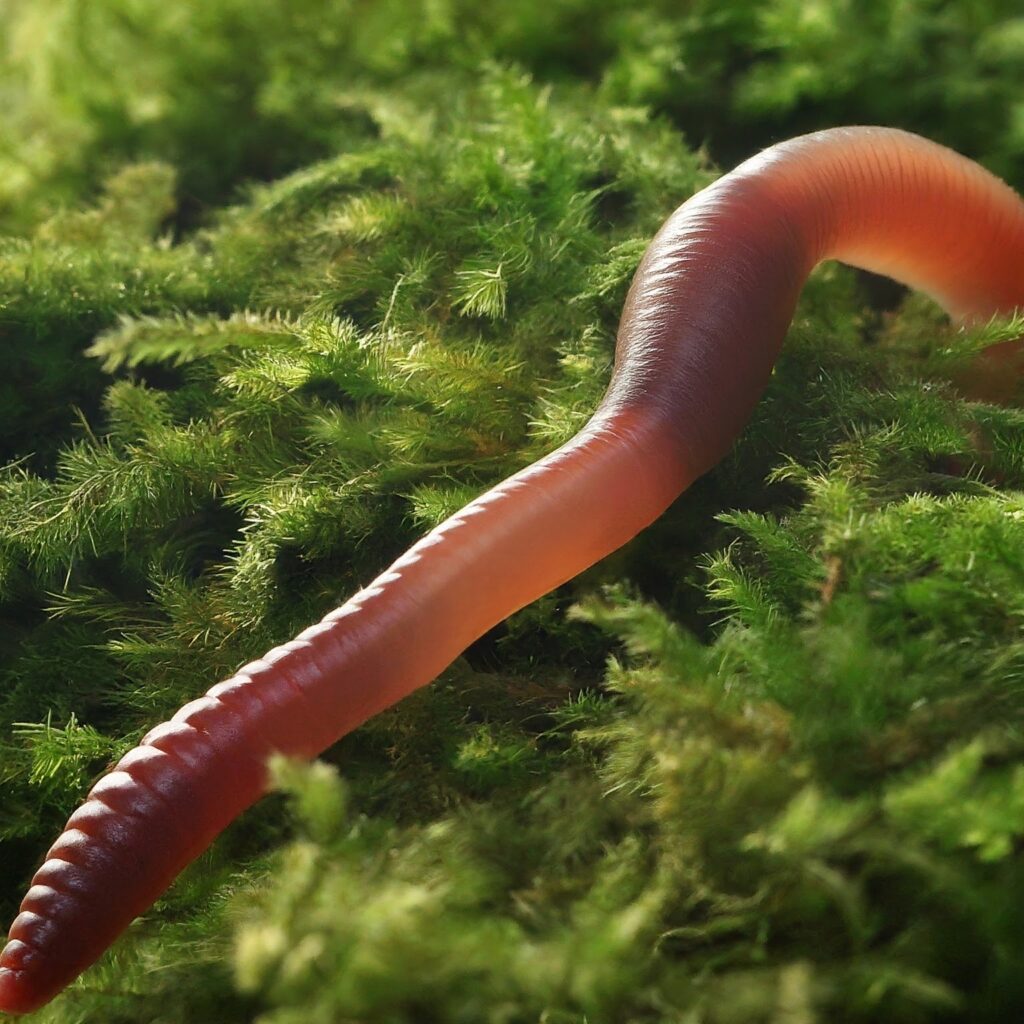
Let’s not forget the earthworm, often overlooked but absolutely essential.
These squiggly creatures work tirelessly beneath the soil, aerating it and breaking down organic matter. This process enriches the soil, making it more fertile and better for your plants.
A garden teeming with earthworms is a sign of healthy, vibrant soil.
12. Praying Mantis
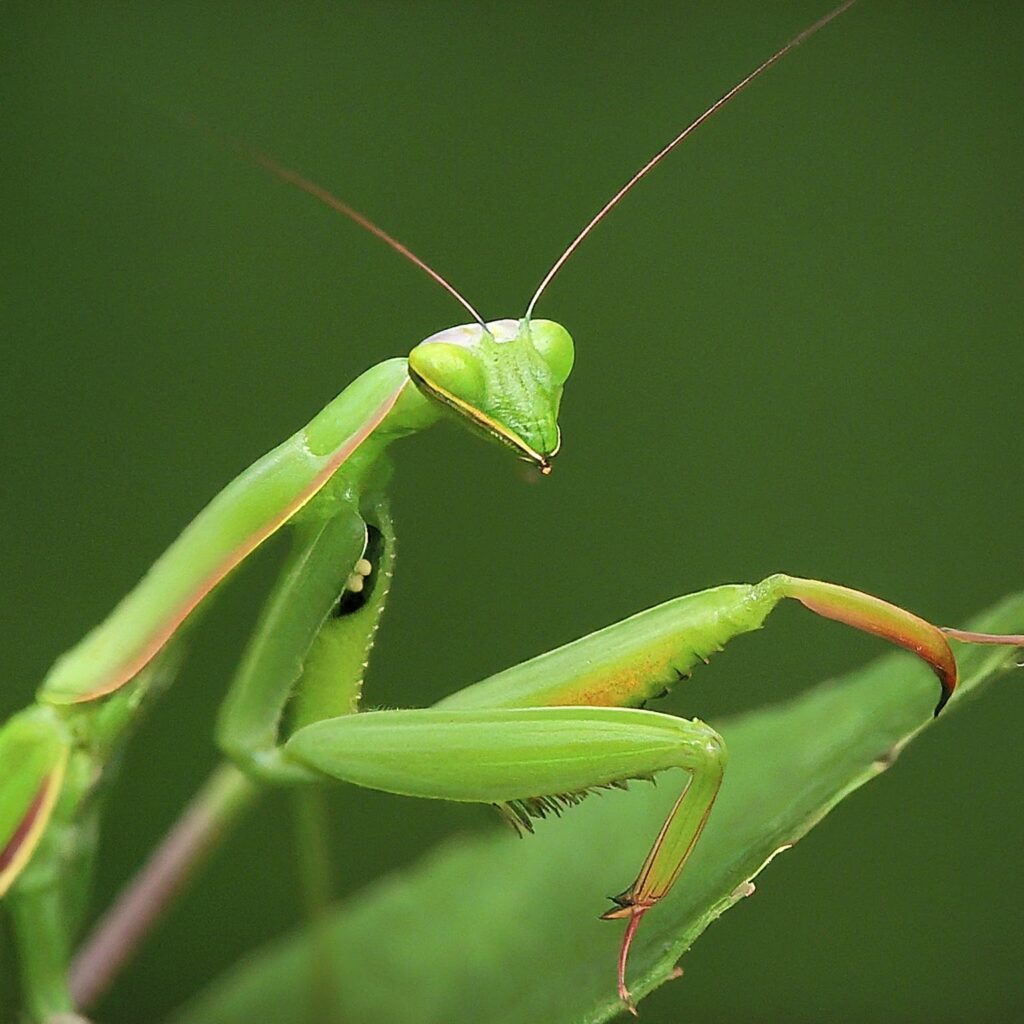
The praying mantis is a green warrior like the ninjas of the garden world. They’re experts at blending in and waiting patiently for their prey, which includes a variety of harmful insects.
While they might look a bit intimidating, praying mantises are incredible pest controllers. They’ll keep your garden free from various unwanted invaders.
So as you can see, fostering a diverse insect population in your garden can help maintain a healthy ecosystem and reduce the need for chemical pesticides.
Now that you know who your allies are, let’s talk about how to invite them into your garden. But how do I attract these beneficial insects in my garden, you ask?
Here are some tips to make your garden a haven for beneficial insects:
- Plant a Variety of Flowers: Different insects are attracted to different flowers. Planting a diverse range of blooms will ensure a variety of beneficial insects find your garden attractive.
- Avoid Pesticides: Chemical pesticides don’t discriminate; they kill both good and bad insects. As such, you should choose natural pest control methods to keep your garden eco-friendly and beneficial bug-friendly.
- Provide Shelter: Insects need a place to live and hide. This means it is a good idea to incorporate plants of varying heights and densities to provide shelter. You can also add insect hotels to your garden.
- Keep Your Garden Healthy: A well-maintained garden is more attractive to beneficial insects. Regularly water, weed, and compost to keep your garden in top shape.

